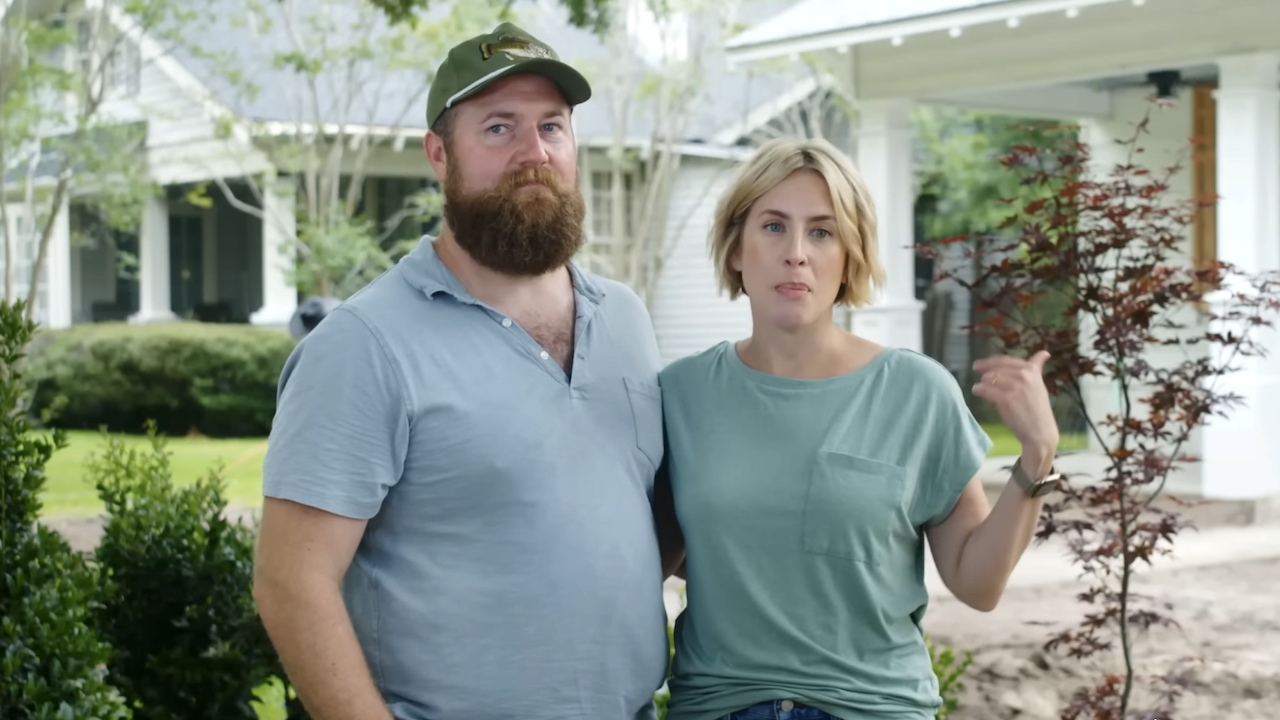10 Beloved Movies That Roger Ebert Hated
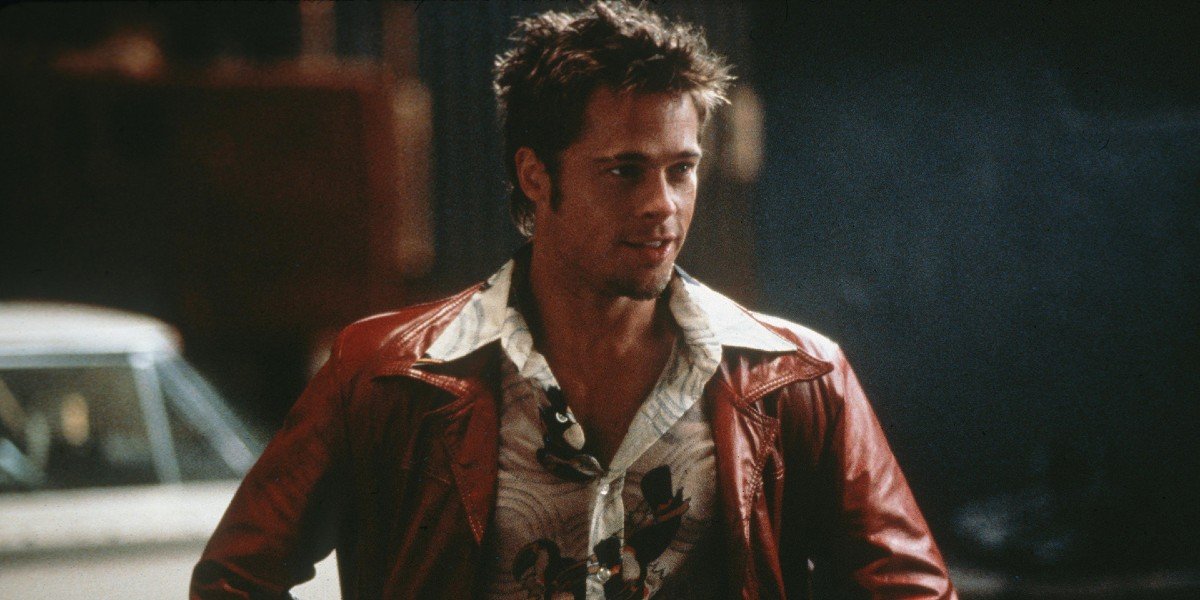
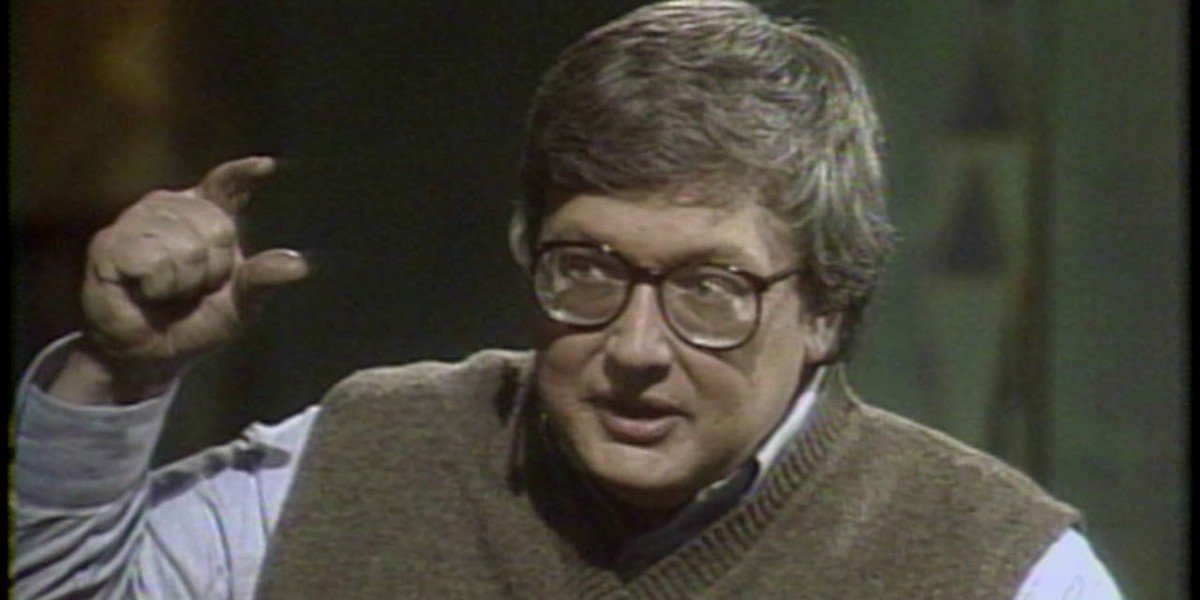
There are few film critics who have earned a legacy more revered than Roger Ebert. The Pulitzer Prize-winning journalist and movie reviewer is one of the absolute best at his craft, and his knack for writing simple-yet-elegant and deeply profound works of film appreciation and criticism are some of the finest writing you'll ever find from movie reviews. Nevertheless, when it came to his opinions on a few of the most popular films of the 20th/early 21st century, Ebert didn't always agree with the general conscious. In fact, there were times when Ebert's film opinions went completely against the norm.
When Roger Ebert hated a movie, he made his voice heard loud-and-clear. Surprisingly, however, there are times when the popular film critic hated a few of the most popular movies of the past few decades. You can't love every movie, and sometimes, you disagree with the general public. Ultimately, Roger Ebert's opinions were always his own, and he expressed himself beautifully even when the world around him disagreed wholeheartedly. Having said that, let's take a look at 10 particularly noteworthy titles — from bonafide classics to fan favorites — and explore why Roger Ebert hated them so.
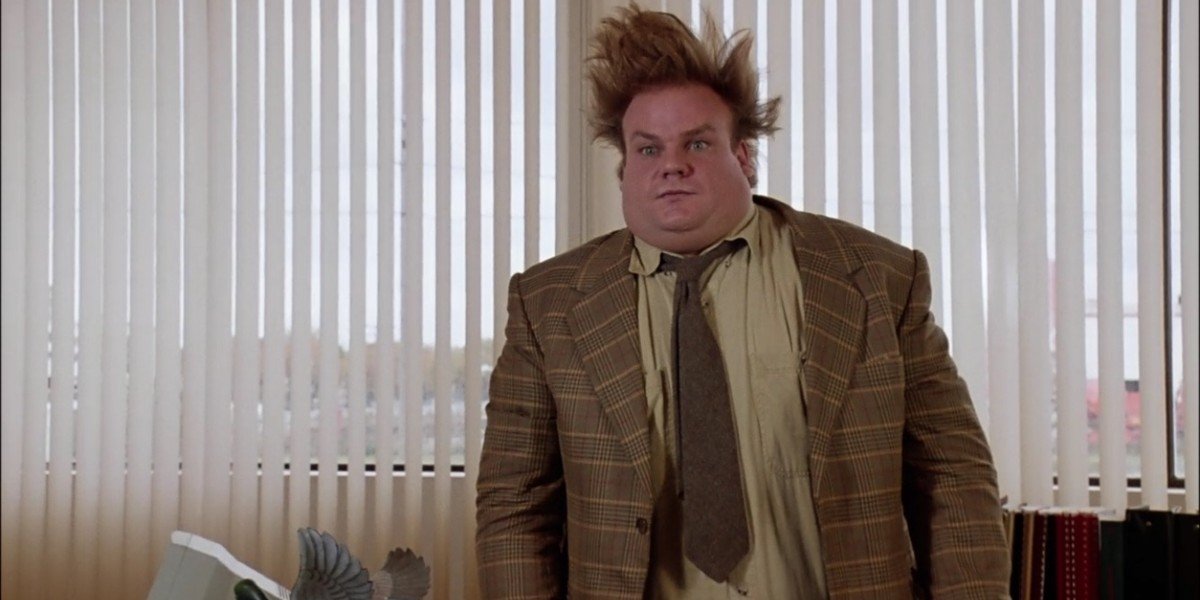
Tommy Boy (1995)
While 1995's Tommy Boy was never a critical darling, it does have its fair share of loyal and hearty fans. The Chris Farley/David Spade buddy road trip comedy is a heartfelt, consistently funny good time that's buoyant and charming largely thanks to the lovable screen presence and sharp physically-comedic timing of the late, great Chris Farley. Tommy Boy has played in constant rotation on Comedy Central and it has been quoted consistently since its release in comedy-loving circles, but it didn't earn the affections of Roger Ebert, to say the least. In his 1/4 star review, the discerning critic went so far as to claim that "no one is funny" in Tommy Boy, and that there are "no memorable lines." He also claimed that the majority of the characters are uninteresting, only making an exception for Rob Lowe's antagonistic character. Here are some choice excerpts from Roger Ebert's dismissive review.
Tommy Boy is one of those movies that plays like an explosion down at the screenplay factory. You can almost picture a bewildered office boy, his face smudged with soot, wandering through the ruins and rescuing pages at random. Too bad they didn't mail them to the insurance company instead of filming them. The movie is an assembly of clichés and obligatory scenes from dozens of other movies, all are better. It has only one original idea, and that's a bad one: The inspiration of making the hero's sidekick into, simultaneously, his buddy, his critic and his rival. It's like the part was written by three writers locked in separate rooms...
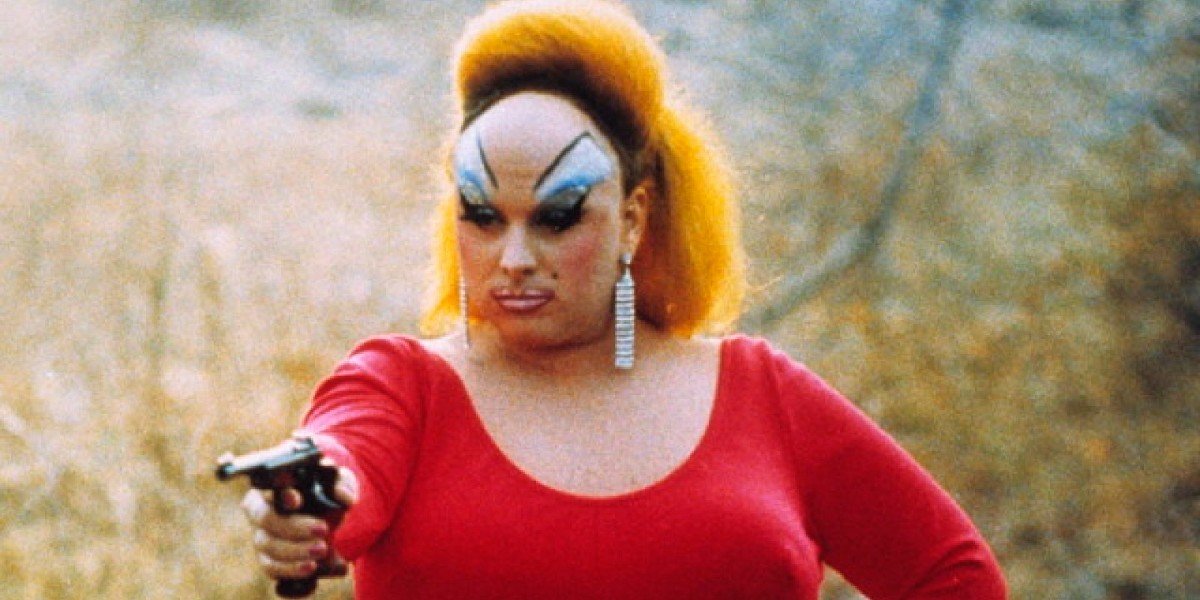
Pink Flamingos (1972)
Admittedly, John Waters' 1972 cult classic Pink Flamingos isn't a movie for everyone. It's a raunchy, rigorously obscene movie that only grew to find its audience over time. Nevertheless, the Pope of Trash's filthy masterpiece is utterly divine — at least, if you're willing to appreciate its brand of low-rent crass absurdism. Evidently, that wasn't the case for Roger Ebert. In his 0/4 star review (ouch!) from 1997, Ebert wasn't afraid to criticize the underground indie hit during its 25th anniversary restoration.
In his review, Ebert claims that Pink Flamingos "appeals to that part of our psyches in which we are horny teenagers at the county fair with fresh dollar bills in our pockets," as well as armed with a strong "desire to see the geek show with a bunch of buddies, so that we can brag about it at school on Monday." He considers it a perverse, obscene work, one that Ebert doesn't even feel deserves the distinction of getting a grade because it is "not a film." There's no doubt that when Roger Ebert absolutely hated a film, he never minced his words.
John Waters' Pink Flamingos has been restored for its 25th anniversary revival, and with any luck at all that means I won't have to see it again for another 25 years. If I haven't retired by then, I will... I am not giving a star rating to Pink Flamingos, because stars simply seem not to apply. It should be considered not as a film but as a fact, or perhaps as an object.
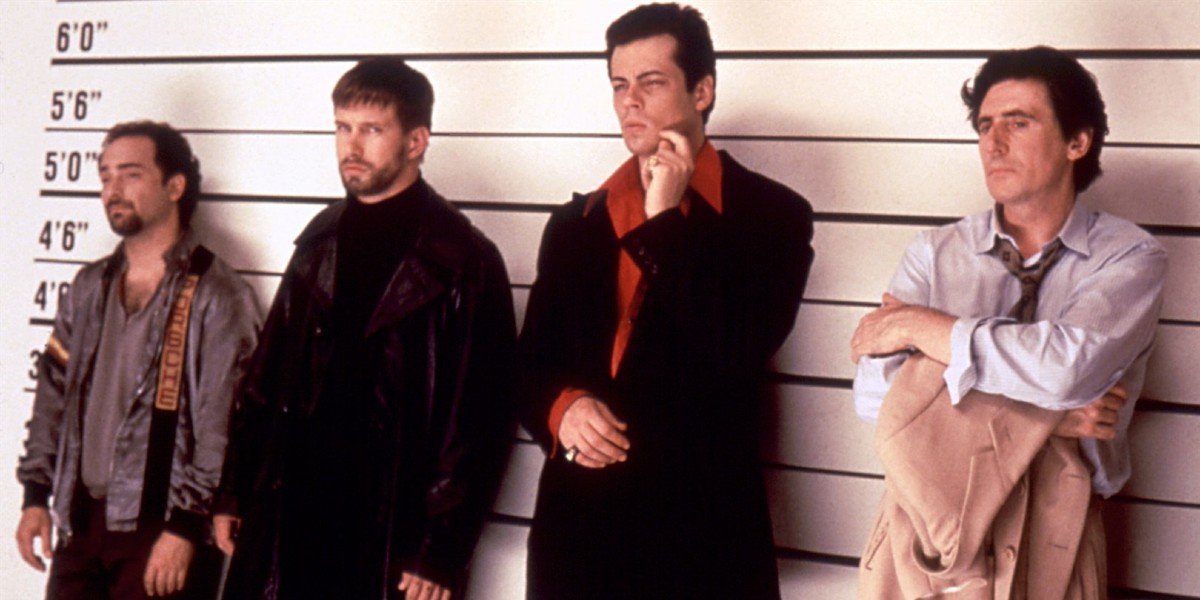
The Usual Suspects (1995)
For some moviegoers, there are few movie twists more surprising than the final moments of 1995's The Usual Suspects. While the sleeper hit movie hasn't gotten as much notice these days as it did upon release, the two-time Oscar-winning movie is still revered for its bending structure and the way it plays with expectations. Nevertheless, Roger Ebert wasn't impressed by what he saw, and he admitted as much in his review, noting at one point that he would prefer to be "amazed by motivation, not manipulation." In his 1.5/4 star review, Ebert suggests that he found the hit movie to be shallow and ineffective in its approach, believing that the twisty structure does not play to the movie's benefit in the long run. Here's what he wrote.
The first time I saw The Usual Suspects was in January, at the Sundance Film Festival, and when I began to lose track of the plot, I thought it was maybe because I'd seen too many movies that day. Some of the other members of the audience liked it, and so when I went to see it again in July, I came armed with a notepad and a determination not to let crucial plot points slip by me. Once again, my comprehension began to slip, and finally I wrote down: 'To the degree that I do understand, I don't care.' It was, however, somewhat reassuring at the end of the movie to discover that I had, after all, understood everything I was intended to understand. It was just that there was less to understand than the movie at first suggests.
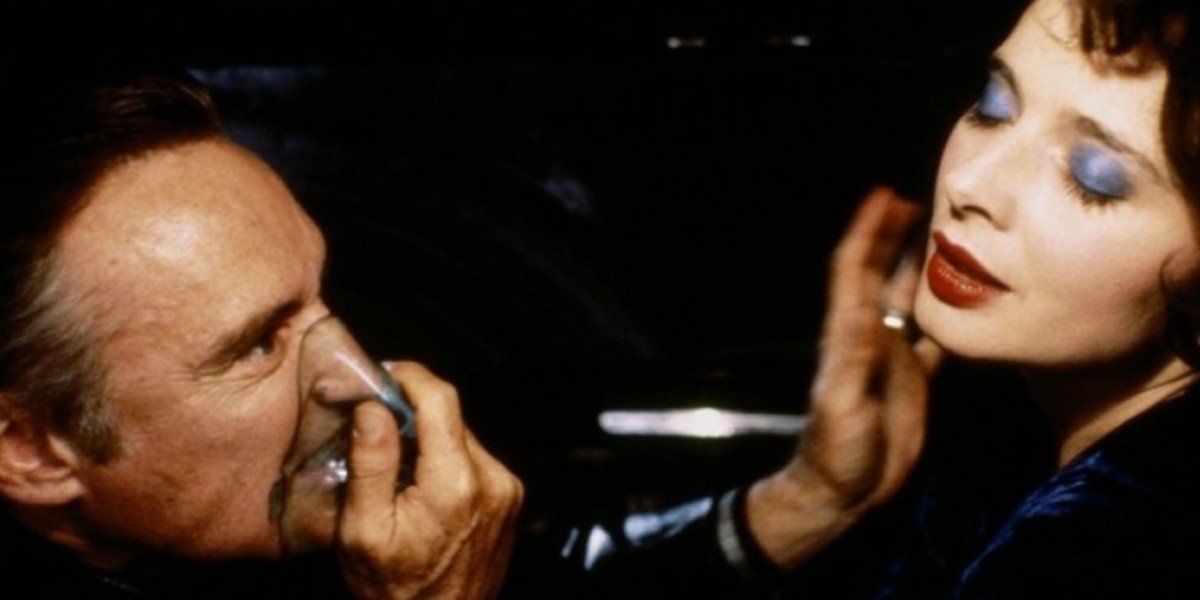
Blue Velvet (1986)
While his movies aren't always accessible, to say the least, David Lynch has proven himself to be one of the boldest, most distinctive, striking, and unpredictable filmmakers in cinema history. And one of his finest accomplishments remains 1986's mesmerizing Blue Velvet, which is still one of the director's most haunting and memorable movies. Alas, this is not an opinion shared by Roger Ebert. The late critic famously detested Lynch's movie, believing that Blue Velvet isn't worthy of such a powerful performance from Isabella Rossellini due to its approach to the subject material at hand. In his 1/4 star review, the film critic expressed confusion and dismay with Blue Velvet, and he felt the movie wasn't worthy of being hailed a "masterpiece."
Your Daily Blend of Entertainment News
Blue Velvet contains scenes of such raw emotional energy that it's easy to understand why some critics have hailed it as a masterpiece. A film this painful and wounding has to be given special consideration. And yet those very scenes of stark sexual despair are the tipoff to what's wrong with the movie. They're so strong that they deserve to be in a movie that is sincere, honest and true. But Blue Velvet surrounds them with a story that's marred by sophomoric satire and cheap shots. The director is either denying the strength of his material or trying to defuse it by pretending it's all part of a campy in-joke.

Fight Club (1999)
In the early 21st century, David Fincher solidified himself as one of the most distinctive and celebrated working directors today. Thanks to movies like Gone Girl, The Social Network, Se7en, Zodiac, and The Girl with the Dragon Tattoo, Fincher made his rigorous talents known in both film communities and abroad. With the cult classic Fight Club, Fincher earned a reputation for making hard-edged cinematic social commentaries that certainly pack a wallop of a punch — in more ways than one, of course. But that's not how Roger Ebert saw Fincher's fourth film.
In his 2/4 star review, Ebert saw Fight Club as empty calories and macho-man postering, the type of overly macho filmmaking that takes itself too seriously and becomes "the most frankly and cheerfully fascist big-star movie" in decades. Ebert also believed audiences wouldn't take home the right message... which isn't off-base. Alas, Roger Ebert clearly didn't follow the first couple rules of Fight Club, as the film critic had a lot of bad things to talk about in his negative review.
Fight Club is the most frankly and cheerfully fascist big-star movie since Death Wish, a celebration of violence in which the heroes write themselves a license to drink, smoke, screw and beat one another up... It's macho porn — the sex movie Hollywood has been moving toward for years, in which eroticism between the sexes is replaced by all-guy locker-room fights. Women, who have had a lifetime of practice at dealing with little-boy posturing, will instinctively see through it; men may get off on the testosterone rush. The fact that it is very well made and has a great first act certainly clouds the issue...
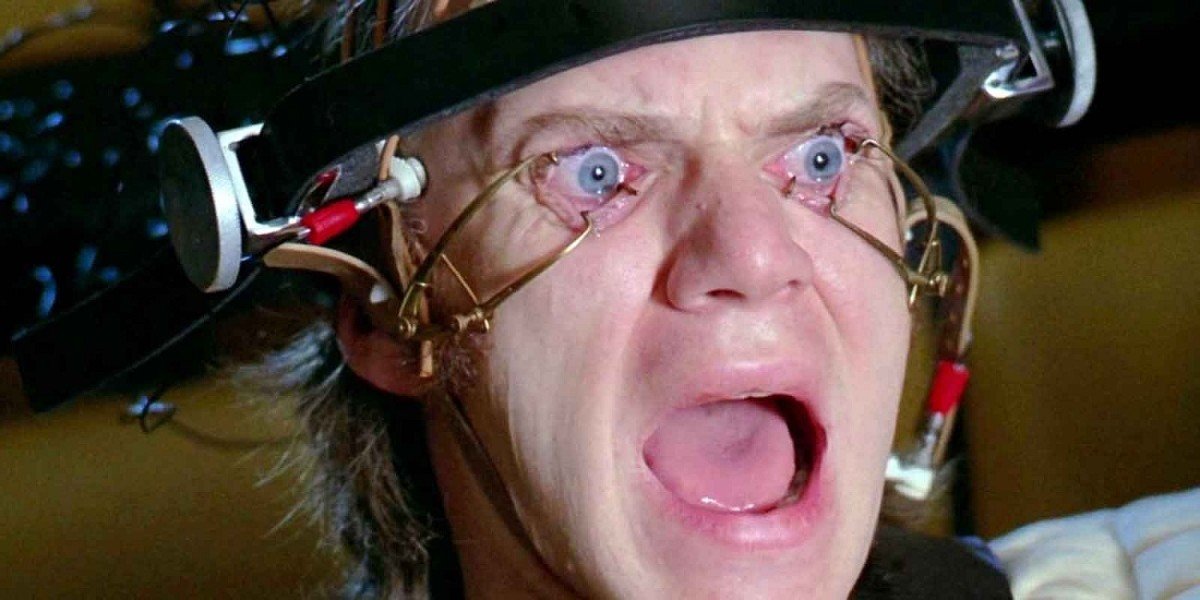
A Clockwork Orange (1971)
Among cinephiles, there are few directors more revered than Stanley Kubrick. The late auteur has created some of the most indelible, impressive, and impressionable movies ever made, including, but certainly not limited to, 2001: A Space Odyssey, Full Metal Jacket, Spartacus, The Shining, Paths Of Glory, Lolita, Dr. Strangelove, Eyes Wide Shut, and several others. One such masterpiece is 1971's A Clockwork Orange, which is easily among the most famous and controversial of Kubrick's films. But despite its controversies, it is widely considered to be among the very best movies Kubrick has ever made. Alas, that wasn't an opinion shared by Roger Ebert. In his 2/4 star review from 1972, Ebert was exceptionally critical of Kubrick's sense of perspective with his main character, believing that the movie is an "ideological mess" centered around a "sadistic rapist" who "disgusts" the reviewer.
Granted, Roger Ebert was certainly not the only person to be critical of Stanley Kubrick's movies. Nevertheless, it's fascinating to read such a cutting pan of what is considered one of the finest movies from one of our finest 20th century filmmakers. In any case, Ebert's criticisms are quite valid, if not broadly shared. The review is perhaps unpopular in its opinion but still as well-written as anything penned by the acclaimed critic. Additionally, weirdly enough, A Clockwork Orange is a favorite for his widow, Chaz Ebert. Sometimes, opposite tastes attract. Here's what Roger Ebert wrote in his review.
Stanley Kubrick's A Clockwork Orange is an ideological mess, a paranoid right-wing fantasy masquerading as an Orwellian warning. It pretends to oppose the police state and forced mind control, but all it really does is celebrate the nastiness of its hero, Alex... But they've really hyped A Clockwork Orange for more than it's worth, and a lot of people will go if only out of curiosity. Too bad ... It is just plain talky and boring. You know there's something wrong with a movie when the last third feels like the last half.
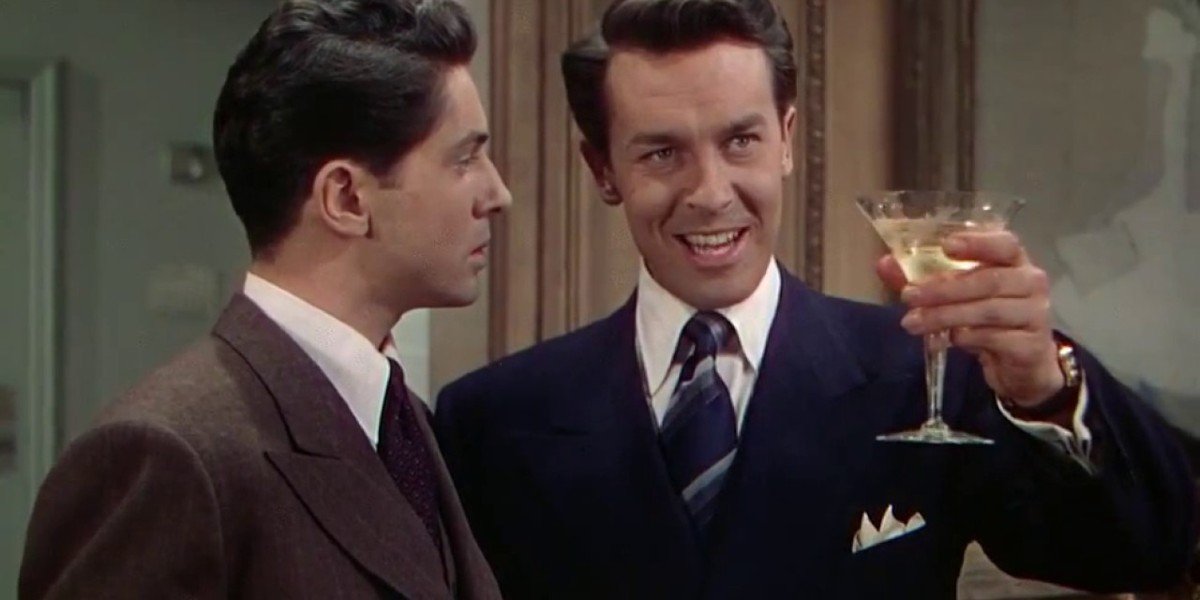
Rope (1948)
Just like Stanley Kubrick, Alfred Hitchcock is widely regarded as one of the most distinctive and influential directors of the 20th century. Whether it's Psycho, The Birds, Rear Window, Vertigo, North by Northwest, Strangers on a Train, Notorious, Dial M for Murder, and several others, a good number of Hitchcock's films are considered masterpieces of their genres and film history, and that includes Rope. The 1948 crime thriller was noteworthy for playing out in real time and featuring the use of extended single shots to appear as though it were one long take throughout the 80 minute run time. Movies like this winter's 1917, for instance, owe a debt of gratitude to Rope. Alas, Roger Ebert was not very impressed with Alfred Hitchcock's film.
In his 2/4 star review from 1984, Roger Ebert agreed with Alfred Hitchcock's assessment that Rope was an "experiment that didn't work out," and he claimed that the movie's one-take look was "an unnecessary gimmick." Still, unlike several of the movies listed in this article, Ebert wanted people to watch this movie. He recommended that audiences check it out at a revival showing, and he considered it "one of the most interesting experiments ever attempted by a major director working with big box-office names." While Ebert gave Rope a mere two stars and didn't have too many glowing comments about the film other than this particular pull quote, he clearly respected the craftsmanship here, even if he does not think the film worked.
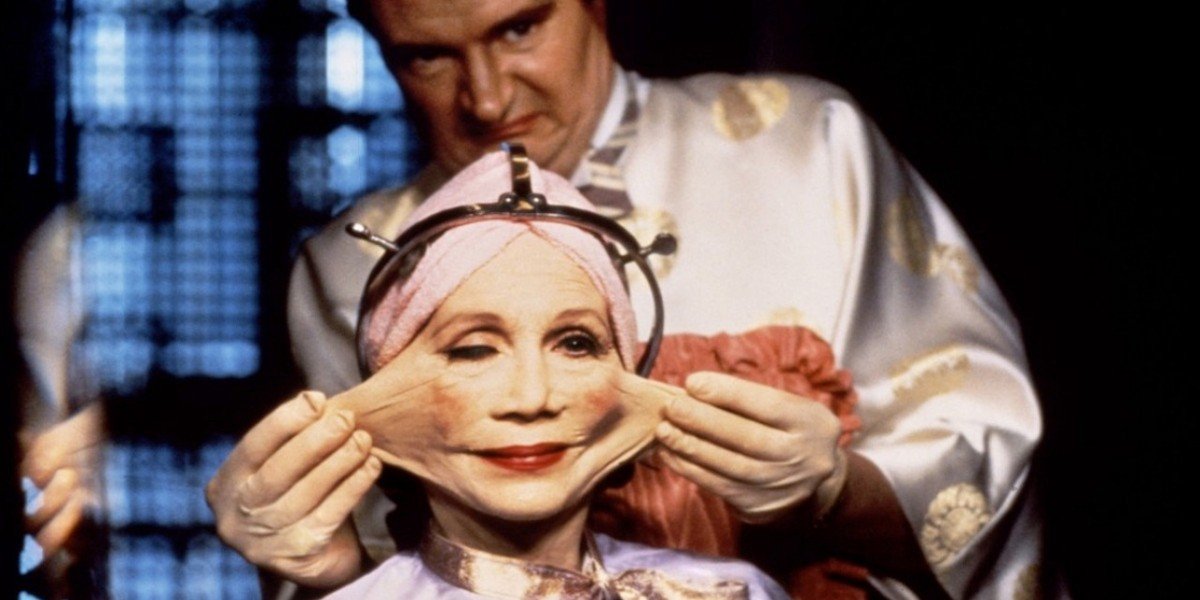
Brazil (1986)
On Rotten Tomatoes, Terry Gilliam's extraordinary Brazil currently sits at 98%, with an audience score of 90%. Of nearly 50 reviews catalogued on the site, in fact, there is only one negative review. Alas, that sole negative review belongs to Roger Ebert, who ultimately didn't see what everyone was raving about in the dystopian, fantastical dark comedy/drama. In his 2/4 star review, Ebert considered Gilliam's masterpiece to be unrestrained and hard to follow. As he constantly compared the film to George Orwell's novel, 1984, and its film adaptation, the film critic believes Brazil to be lesser than both and lacking compared to what made each of them so powerful. While there are no shortage of praise thrown to Terry Gilliam's movie elsewhere, no such compliments were found by Roger Ebert in his 1986 write-up contradicting the general conscious of the sci-fi classic. Here is a biting snippet from Roger Ebert's review.
The movie is very hard to follow. I have seen it twice, and am still not sure exactly who all the characters are, or how they fit.
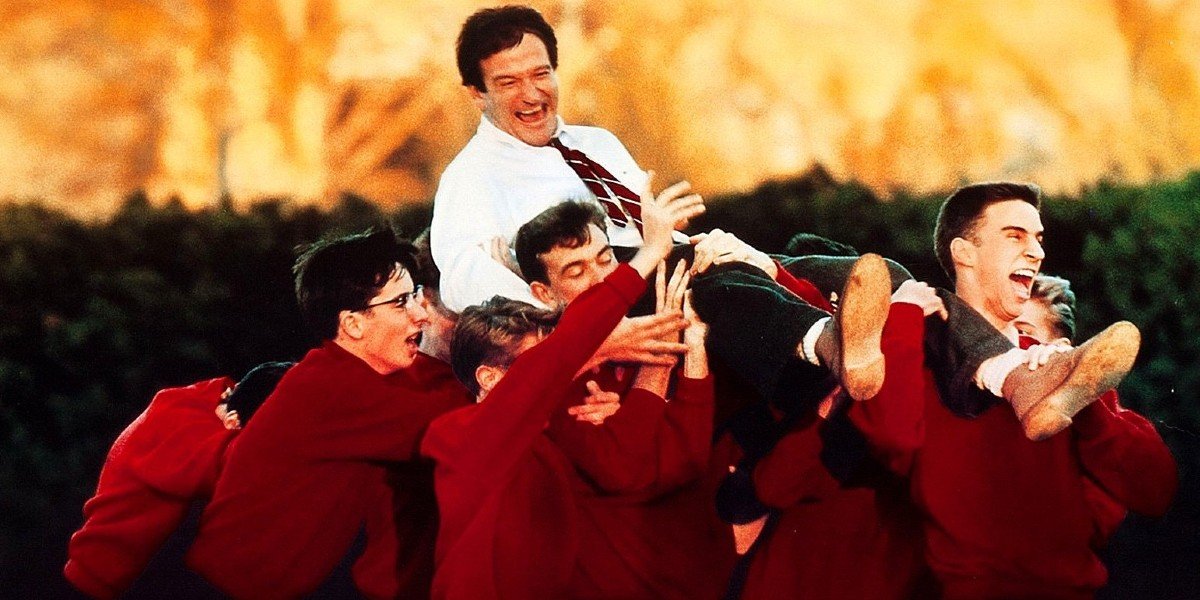
Dead Poets Society (1989)
A sweet, moving and gentle-hearted movie about the power of learning and teaching, Dead Poets Society is a warm-hearted winner, as well as your English teacher's favorite movie. There is a good chance that you were shown the movie at least once in your high school English class. Nevertheless, the Oscar-winning drama wasn't warmly regarded by Roger Ebert. In his dismissive 2/4 star review, the film critic believes that Peter Weir's acclaimed movie doesn't haven't the courage of its convictions, despite a fine performance from Robin Williams in the lead role. He criticizes what he believes is a false and clunky movie, one that's unwilling and/or unable to properly honor the poets that it celebrates. Here are some quotes from Ebert's review.
Dead Poets Society is not the worst of the countless recent movies about good kids and hidebound, authoritatian older people. It may, however, be the most shameless in its attempt to pander to an adolescent audience. The movie pays lip service to qualities and values that, on the evidence of the screenplay itself, it is cheerfully willing to abandon. If you are going to evoke Henry David Thoreau as the patron saint of your movie, then you had better make a movie he would have admired.
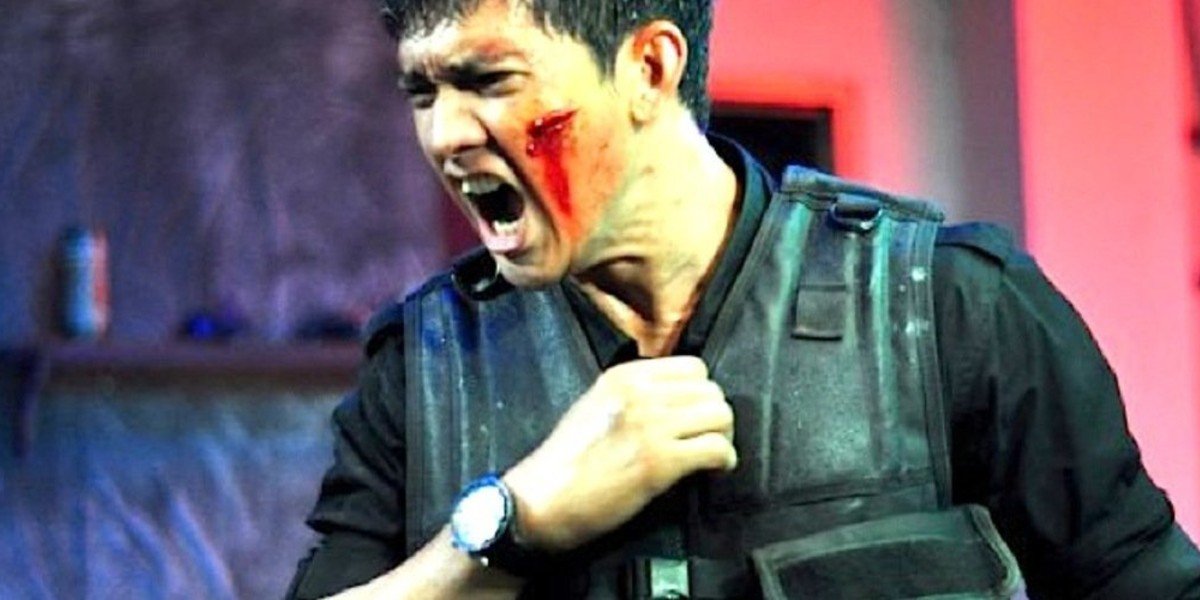
The Raid: Redemption (2012)
Among action movie lovers, The Raid: Redemption was one of the most impressive and awe-inspiring martial arts movies in years. Probably decades. Maybe ever! Nevertheless, the hard ass-kicking, neck-stomping, body-twisting movie didn't win over Roger Ebert. In his 1/4 star review, the critic was quick to acknowledge the high volume of positive reviews towards the action-friendly film, but Ebert equated the experience of watching The Raid to "a visualized video game that spares the audience the inconvenience of playing it." While he notes that there is an audience for this extreme film, the movie critic believed this particular movie is one without "plot," "dialogue," or "humanity," believing it becomes an entirely cynical viewing experience.
The Raid: Redemption has a rating of 93 percent on the Tomatometer. It is being hailed as a breakthrough in martial-arts films... I have no prejudice against violence when I find it in a well-made film. But this film is almost brutally cynical in its approach. The Welsh director, Gareth Evans, knows there's a fanboy audience for his formula, in which special effects amp up the mayhem in senseless carnage. There's obviously an audience for the film, probably a large one. They are content, even eager, to sit in a theater and watch one action figure after another pound and blast one another to death. They require no dialogue, no plot, no characters, no humanity. Have you noticed how cats and dogs will look at a TV screen on which there are things jumping around? It is to that level of the brain's reptilian complex that the film appeals. The Raid: Redemption is essentially a visualized video game that spares the audience the inconvenience of playing it.
Admittedly, these are only a handful of the times where Roger Ebert went against the consensus on a popular film. And there are plenty of examples where Ebert praised a movie that was otherwise panned. Nevertheless, what is the biggest surprise? Which popular movie can't you believe Roger Ebert didn't like? Let us know which unexpected critical thrashing from the legendary late movie critic surprises you the most down in the comments.
Will is an entertainment writer based in Pittsburgh, PA. His writing can also be found in The Playlist, Cut Print Film, We Got This Covered, The Young Folks, Slate and other outlets. He also co-hosts the weekly film/TV podcast Cinemaholics with Jon Negroni and he likes to think he's a professional Garfield enthusiast.

